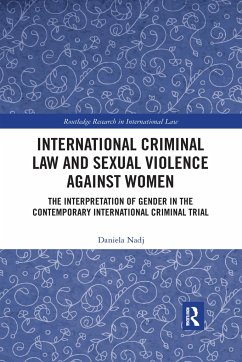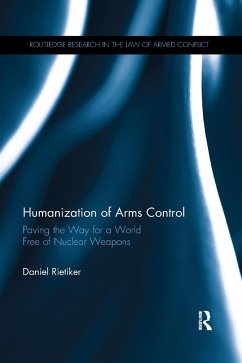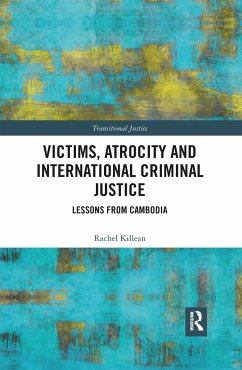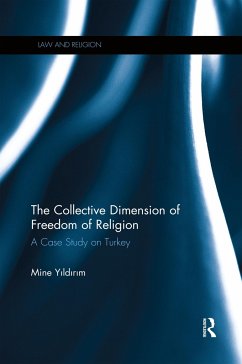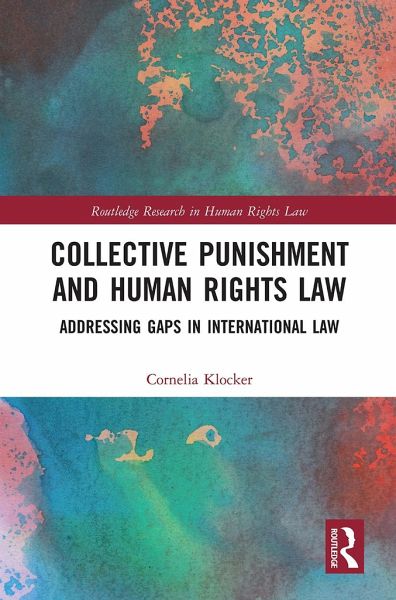
Collective Punishment and Human Rights Law
Addressing Gaps in International Law
Versandkostenfrei!
Versandfertig in 1-2 Wochen
55,99 €
inkl. MwSt.
Weitere Ausgaben:

PAYBACK Punkte
28 °P sammeln!
This book analyses collective punishment in the context of human rights law. Collective punishment is a concept deriving from the law of armed conflict. It describes the punishment of a group for an act allegedly committed by one of its members and is prohibited in times of armed conflict. Although the imposition of collective punishment has been witnessed in situations outside armed conflict as well, human rights instruments do not explicitly address collective punishment. Consequently, there is a genuine gap in the protection of affected groups in situations outside of or short of armed conf...
This book analyses collective punishment in the context of human rights law. Collective punishment is a concept deriving from the law of armed conflict. It describes the punishment of a group for an act allegedly committed by one of its members and is prohibited in times of armed conflict. Although the imposition of collective punishment has been witnessed in situations outside armed conflict as well, human rights instruments do not explicitly address collective punishment. Consequently, there is a genuine gap in the protection of affected groups in situations outside of or short of armed conflict. Supported by two case studies on collective punishment in the Occupied Palestinian Territories and in Chechnya, the book examines potential options to close this gap in human rights law in a way contributing to the empowerment of affected groups. This analysis centres on the European Convention on Human Rights due to its relevance to the situation in Chechnya. By questioning whether human rights instruments can encompass a prohibition of collective punishment, the book contributes to the broader academic debate on rights held by collectivities in general and on collective human rights in particular. The book will be of interest to students, academics and policy makers in the areas of International Human Rights Law, International Humanitarian Law and International Criminal Law.






